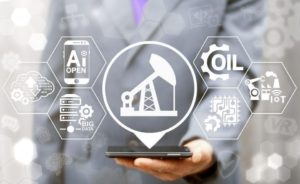 Royal Dutch Shell is heavily investing in research and development of artificial intelligence (AI), which it hopes will provide solutions to some of its most pressing challenges. Current initiatives include deploying reinforcement learning in its exploration and drilling program, to reduce the cost of extracting the gas that still drives a significant proportion of its revenues. Shell is rolling out AI at its public electric car charging stations, to manage the shifting demand for power throughout a day. It has also installed computer vision-enabled cameras at service stations, which are capable of detecting customers lighting cigarettes – a severe hazard. Shell is involved in the entire oil and gas supply chain – from mining raw hydrocarbons from the earth to refining them into fuel and various other products, to retailing them to businesses and individuals. AI is being rolled out or trialed at each step of this process. Recent developments include the adoption of reinforcement learning – a form of “semi-supervised” machine learning, to control its drilling equipment. Encouraging motorists to switch to an electric vehicle is seen as key to reducing the CO2 emissions caused by humanity, and limiting their effect on climate change. But it involves something of a chicken-and-egg problem. Motorists are put off making the switch due to a lack of public charging terminals, and forecourt operators may be slow to adopt them due to a lack of demand. Shell’s answer to this problem involves deploying AI to monitor and predict the demand for terminals throughout the day, enabling power to be supplied more efficiently. Forbes
Royal Dutch Shell is heavily investing in research and development of artificial intelligence (AI), which it hopes will provide solutions to some of its most pressing challenges. Current initiatives include deploying reinforcement learning in its exploration and drilling program, to reduce the cost of extracting the gas that still drives a significant proportion of its revenues. Shell is rolling out AI at its public electric car charging stations, to manage the shifting demand for power throughout a day. It has also installed computer vision-enabled cameras at service stations, which are capable of detecting customers lighting cigarettes – a severe hazard. Shell is involved in the entire oil and gas supply chain – from mining raw hydrocarbons from the earth to refining them into fuel and various other products, to retailing them to businesses and individuals. AI is being rolled out or trialed at each step of this process. Recent developments include the adoption of reinforcement learning – a form of “semi-supervised” machine learning, to control its drilling equipment. Encouraging motorists to switch to an electric vehicle is seen as key to reducing the CO2 emissions caused by humanity, and limiting their effect on climate change. But it involves something of a chicken-and-egg problem. Motorists are put off making the switch due to a lack of public charging terminals, and forecourt operators may be slow to adopt them due to a lack of demand. Shell’s answer to this problem involves deploying AI to monitor and predict the demand for terminals throughout the day, enabling power to be supplied more efficiently. Forbes
